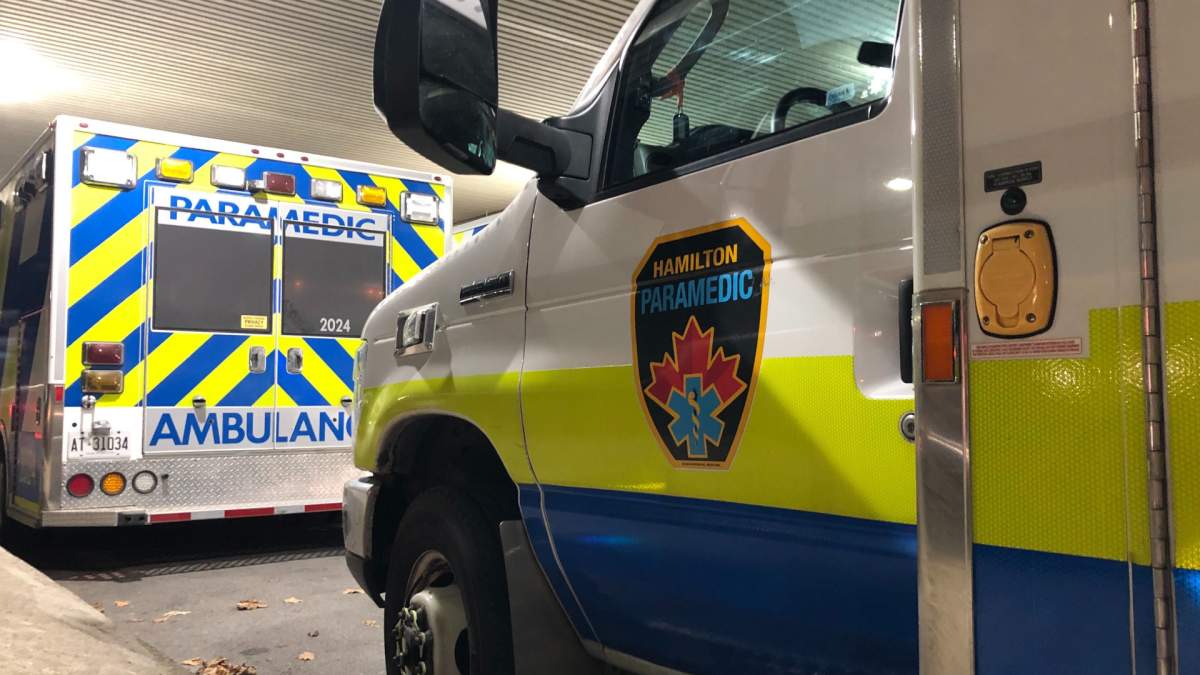Opioid-related overdose calls in Hamilton continued to trend upward in the second quarter of 2023, according to a city report.

The latest report on overdoses brought to a board of health meeting Friday revealed 257 suspected opioid poisonings between April 1 and June 30.
That’s up 81 calls compared with the same period in 2022, equating to around 19 opioid-related paramedic calls per week or 2.8 calls per day.
The number is closer to the 235 occurrences paramedics responded to in 2021.
June had the highest number of incidents, 98, in the second quarter, the most since the 103 recorded in September of 2021.
Almost two out of three opioid-related paramedic calls involved people aged 25 to 44 years and more than three out of four involved males.
A McMaster University researcher and lead author of a study published in the scientific journal PLOS One says Ontario hospital staff not only have been dealing with increases in overdoses but a bump over the last decade in conditions like withdrawal, dependency, harmful use and late-onset psychotic disorders.
“We found that ER visits … for these other conditions, that extend from opioids … doubled in that time period after adjusting for population growth,” said Ryan Strum a PhD student in the Department of Health Research Methods, Evidence and Impact.
“What we found for paramedic use of those who call 911, … transport to the ER for emergency care have increased nearly fourfold.”
Since 2019, 66 per cent to 71 per cent of opioid-related calls have occurred among people aged 25 to 44 years, and 73 per cent to 78 per cent of dispatches are tied to men in distress.
Most calls came from downtown and central Hamilton, with 55 per cent tied to Ward 2 and 22 per cent to Ward 3.

Get breaking National news
Local coroner’s data suggests there were 41 suspect drug-related deaths in Q2, an average of 3.2 deaths per week.
The number is lower than the same quarter in 2022, which had 44, and the lowest since 2018 when 37 were recorded. Twenty-eight of the dead in 2023 were males.
- Attack on Iran triggers global flight disruptions, impacts Canadian travellers
- Queen’s University students stranded in Doha after Iran attack shuts down airspace
- WWE Hall of Fame ring belonging to wrestling legend recovered after stolen
- Quebec politician praised for speaking openly about menopause symptom in legislature
Dundas Coun. Alex Wilson, who spearheaded a motion in February to regularly receive quarterly reports on overdoses during board of health meetings, characterized the city’s situation as “not getting better.”
“Despite the fact that we are doing more as a city, the size of the problem continues to grow,” he said.
Strum suggests more sustainable healthcare models are needed to take pressure off emergency rooms when treating opioid cases in the province that simply don’t require immediate attention.
“Is there an opportunity to take these patients to alternative care that’s beyond the ED, that way we would be surpassing the emergency department completely … taking them to specific substance abuse centers or mental health facilities directly,” said Strum.
In June the city gave the thumbs-up to an action plan that includes a couple of short-term pilot projects to fight opioid abuse in the city at a cost of about $1 million over two years.
The short-term initiatives include a one-year drug checking and surveillance pilot starting in October measuring the toxicity of drugs in the community.
Test kits are an emerging technology offering a glimmer of hope for drug users that involves the mixing of a substance with water and dropping the mixture on the strip.
Also in the plan is an 18-month pilot that would scale up supervised consumption sites by placing one in a men’s shelter.










Comments
Want to discuss? Please read our Commenting Policy first.